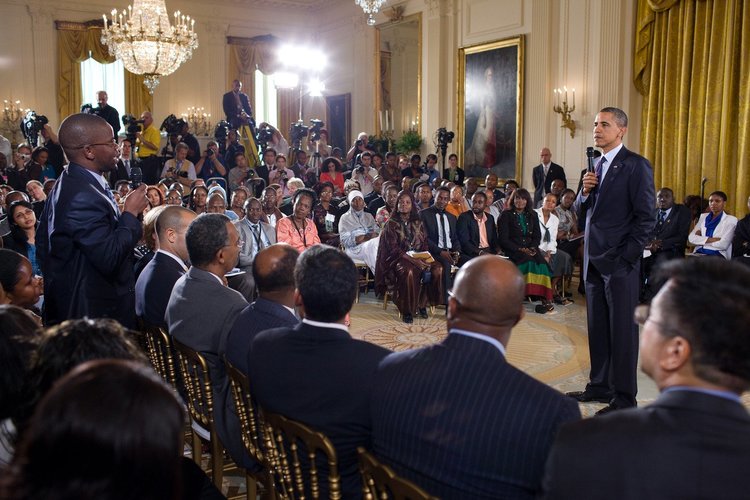We believe that non-native English speakers who want to improve their English from good to great (intermediate to advanced) should practice the art of storytelling. Whether you’re the mayor of a tiny town, the president of a student group, or the CEO of a corporation with tens of thousands of people, being a great storyteller is one of the most important abilities for any leader.
What makes you a great storyteller?
Great storytellers not only gain their audience’s trust and credibility, but they also know how to inspire them and take them to a new level of emotional commitment. A good storyteller can make your heart beat faster, your thoughts wiser, and your heart feels like it might explode with excitement. That is the power of a great narrative. Non-native speakers with a decent grasp of the English language and a vocabulary of above 1000 words should begin practicing advanced communication skills such as public speaking and story-telling.
Barack Obama is largely regarded as one of our generation’s most brilliant and charismatic storytellers. It’s difficult to find a greater model than Barak Obama for corporate leaders, students, or aspiring social leaders who are attempting to perfect the art of storytelling.
The entire globe has had the opportunity to witness Obama’s podium charm thanks to YouTube. His 2008 inauguration speech and his 2013 inauguration speech are two notable instances. But it was Obama’s legendary “Audacity of Hope” speaking at the 2004 Democratic National Convention that really put him on the map. This is a must-see for everyone who hasn’t seen it yet.
Now for the big question: what makes Obama such a great storyteller?
There are three distinguishing characteristics from which non-native English speakers can learn:
1) Obama has a diverse and distinct lexicon at his disposal. His choice of words and figures of speech create a vivid, indelible image of what he’s discussing (This is extremely hard in politics). His previous experience as a writer could be a major impact on this. Writers are usually more articulate than the average person. If you’re an excellent writer, your lexicon is likely to be more varied than others.
Lesson: Whether you’re speaking or writing, it’s critical to use the new words you’ve learned in your conversations. This is especially true for people who do not speak English as their first language. Start with writing if you’re frightened of making mistakes while speaking. Writing offers you more time to ponder and allows you to do it without being judged by others. Remember that it’s your active vocabulary that counts and not a regular word knowledge. The only way to increase your active vocabulary is to use new words you learn in English.
2) Obama is a natural performer on stage. He looks everyone in the audience in the eyes. When Obama takes the stage, he has a near-perfect posture. The perfect posture is crucial in conveying the appropriate level of confidence. The presence of a speaker who is not standing straight conveys the feeling of trepidation. Obama stands tall and conveys self-assurance through his body language.
The only way to build confidence is to prepare. If you have a significant English interview or presentation coming up, practice with a native English speaker beforehand. The better prepared you are now, the more confident you will appear.
3) Barack Obama’s speaking voice is crystal clear. Even non-native English speakers can grasp every word he says. His voice is never weak or anxious, and he never mumbles. Importantly, his tone of voice is consistent throughout his discourse.
Final lesson
Make an effort to talk slowly and clearly. The speed at which different languages are spoken varies. The majority of non-native English speakers eventually speak English at the same rate as their native tongue. Again, the best method to practice this is to engage in real conversations with fluent English speakers so that you can develop an instinctual sense of how fast you should speak.

